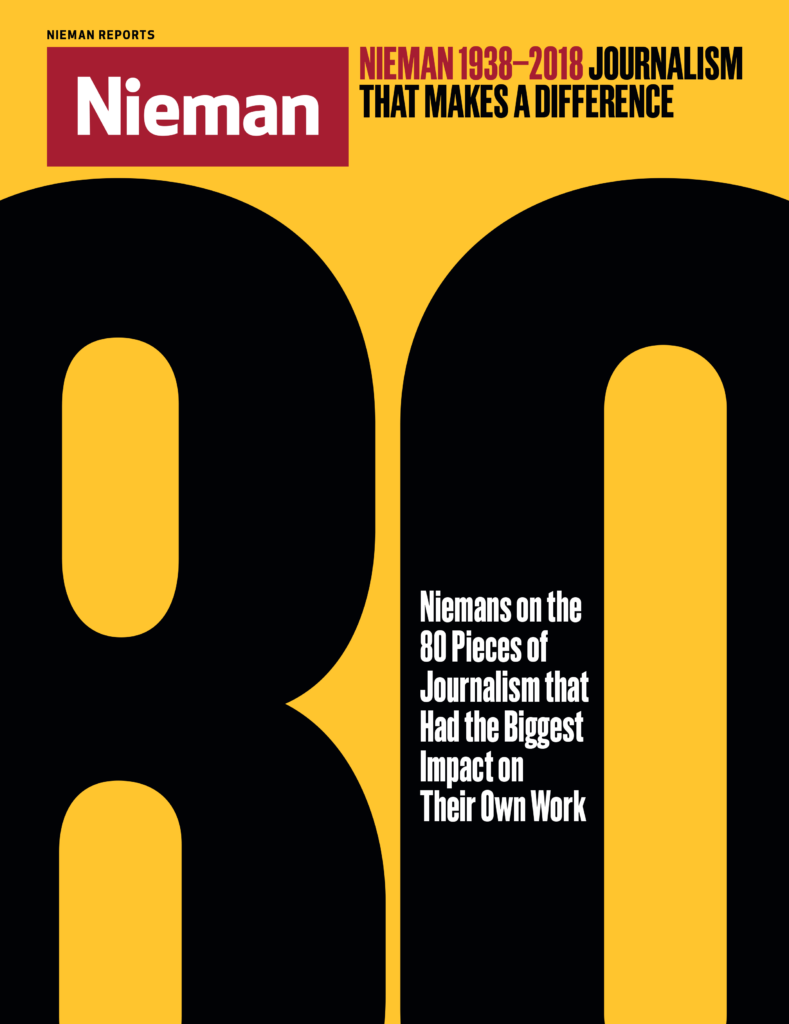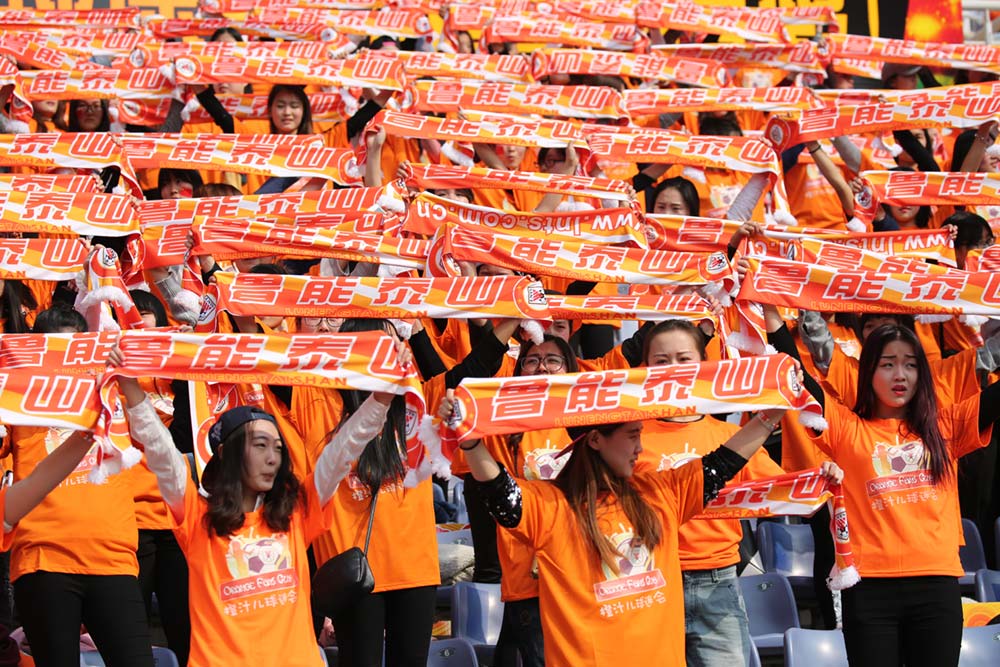
How are great journalists made? Often, it’s pieces of great journalism that help form them, influencing their lives or careers in an indelible way. To celebrate the Nieman Foundation for Journalism’s 80th anniversary in 2018, we asked Nieman Fellows to share works of journalism that in some way left a significant mark on them, their work or their beat, their country, or their culture. The result is what Nieman curator Ann Marie Lipinski calls “an accidental curriculum that has shaped generations of journalists.”
The story “Who Owns Luneng?”, now back online, was censored immediately after Caijing Magazine published it in January 2007. At newsstands, the magazine was bought up not by readers, but by people who didn’t want others to read it. On the internet, it was deleted with only the headline remaining. The story is one of the early ones about the ties between money and power in China, an enduring theme in award-winning reporting produced by Chinese and foreign journalists.
This one didn’t get a trophy, but it deserves a place in the history of China’s journalism. It’s a rare story on how state assets, in this case a state-owned utility company worth $10 billion, was sold to private companies linked to top officials at the astonishing bargain price of half a billion dollars. The story didn’t stop such behavior, yet it shed light on how public assets were put into private pockets, a theme reporters have returned to again and again. I’d like to believe this is a significant story that has encouraged that kind of coverage.
Who Owns Luneng?
By Li Qiyan and Wang Xiaobing
Caijing Magazine, Jan. 6, 2007
Translated by Mia Li
Excerpt
The last snow of the year fell on the city of Jinan, capital of Shandong Province, on December 30, 2006. Advertising screens with the name “Luneng” flank the city’s major avenues, shining through the falling snowflakes. Their light looks especially dazzling on the cold streets in the dead of night.
Having risen from its expansive home province of Shandong in recent years, Luneng is a conglomerate with subsidiaries in coal power, mining, real estate, construction, finance, and sports. The name “Luneng” is well-known to power industry insiders and passersby alike. What is not well-known is the fact that this mammoth enterprise has quietly undergone a change in ownership.
Not only does Luneng now exceed the size of its parent company Shandong Power Group, it also is bigger than local giants such as Shengli Oil Field, Yanzhou Coal, and the Haier Group. According to the National Statistics Bureau, at the end of 2005 Luneng was the biggest enterprise in Shandong with total assets of 73.8 billion yuan.
Little does the outside world know, however, that this gargantuan enterprise has not been a state-owned or an employee-owned enterprise for years. Via a series of carefully orchestrated maneuvers by a few Luneng insiders, two Beijing-based companies, Beijing Shouda Energy Group and Beijing Guoyuan United, now own 91.6 percent of Luneng.



